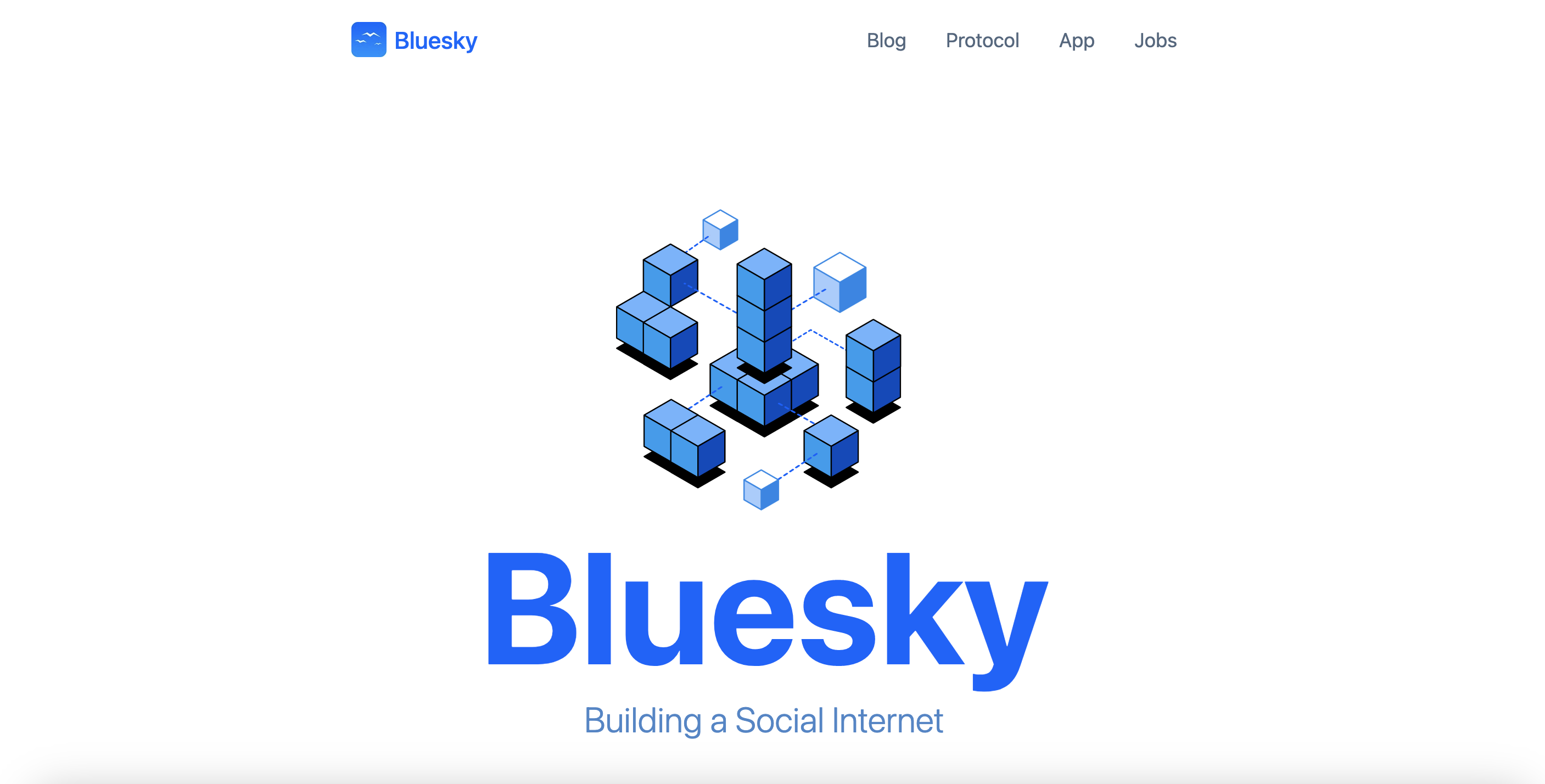The first thing you notice using Bluesky is how happy everyone is to no longer be drinking from the fire hose in Elon Musk’s Godforsaken hellscape.
To my surprise Friday, I received a passcode to join Bluesky, the exclusive, invite-only social media app, which basically bills itself as non-toxic Twitter.
As someone who is very online but rarely tweets outside of work, I quickly realized that Bluesky—at least for the time being—has little utility for a person like me. I have no interest in making new internet friends or monitoring strangers’ non-news-related “skeets,” a funny and unfortunate name for posts that have taken hold to the chagrin of Bluesky CEO Jay Graber.
I spent the weekend checking out the “skeets on the hotfeed” to get a sense of the discourse, which is ironic and insidery like a lot of Twitter, while also sending out a few posts to test the user experience.
Bluesky is nearly identical to Twitter in appearance, scrolling capabilities and features. The main difference between the two, at this moment in time, is the makeup of the communities.
Twitter, the company Jack Dorsey co-founded, has changed notably since Musk purchased the company and began stripping it for parts. He recently rolled out a confusing series of badge announcements in between posting juvenile memes and letting Neo-Nazis, transphobes and other trolls go mostly unchecked.
Twitter is everywhere and everyone is on it, and Bluesky, for the moment, appears to be limited to the “SF tech Illuminati”—as the person who invited me joked—and a handful of fun Twitter personas (e.g. Darth), journalists (e.g. Jake Tapper) and social media savvy politicians (e.g. Alexandria Ocasio-Cortez). New users are unable to extend invites to others until spending enough time on the app.
I joined Twitter early enough to see it morph from an echo chamber to an indispensable news source that helped revolutions gain steam to a clown show that made the news cycle nearly spin off its axis. Regardless of what we call this current iteration, Twitter has become increasingly buggy, and it’s now more difficult to decipher who’s an informed source and someone simply paying for clout.
Bluesky does not allow GIFs or videos, and there are no DMs, but for the moment it’s at least … kind of pleasant? Searching the term “Whole Foods” has drastically different outcomes between Twitter and Bluesky, with the former focusing on San Francisco’s shuttered market and drug-addled Downtown. Bluesky is not yet being used to share a whole lot of news.
From what I observed, Bluesky users are generally just making jokes and treating each other in the way they would like to be treated. While the golden rule mostly applies, by the end of my three-day experiment I came across a New York Times columnist and Bitcoin booster having an exhausting argument that was performative and stupid and tailor-made for social media, which, first and foremost, remains all about engagement.
As is the case with virtually all social media, the self-indulgence is smothering, and there is something particularly exhausting about seeing people celebrate the fact that they are in an exclusive new club, where people are literally doing the same thing they did in the old club, which is mostly ignore the real world and develop inside jokes that are nearly impossible to explain because you just had to be there, whether it was four minutes or four hours ago.
The timeline cleanse of a dog or cat photo, a view from a person’s walk or even a snapshot of someone’s lunch can have a positive effect both on Twitter and Bluesky, but then a thought enters my head: Why am I wasting my life looking at someone’s salad or a dog that may not even be a good or interesting boy?
In my brief time on the app, the Bluesky discourse went from pro-labor union posts to people supporting transgender rights to an insidery avalanche about a glitchy “hellthread” (I’m not even going to bother to explain) to a Sunday morning confab about AOC being exposed to butt and boob pics the previous evening.
Bluesky’s evolution is happening in real-time, bugs and all, and the app apparently rolled out a feature to block people. The settings allow users to hide, warn or show content that ranges from: explicit sexual images; other nudity; sexually suggestive, which does not include nudity; violent/bloody; political hate groups; spam; and accounts impersonating others.
Dorsey, who started his own controversy on Bluesky by talking about Musk’s handling of Twitter, confirmed that the goal of Bluesky is to let the bird of Twitter fly free through “open protocol.” Bluesky will eventually allow people to share social media across platforms that don’t exactly mesh (i.e. Twitter, Instagram and TikTok). It’s too early to know how the experiment will work, but it all sounds promising.
There’s no putting the monkey back in the bottle on social media, and maybe Bluesky will succeed in being a place where people are free to make new friends, share insightful news and opinions, expand the discourse on culture, and form interest-based cliques and communities to nerd out and laugh.
The thought of doing all of that and leaving Musk behind may be all the motivation millions of people need.
